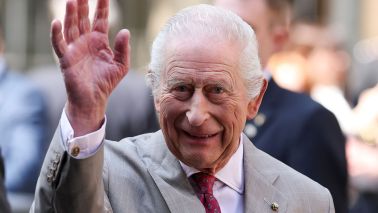The BBC was not included in the Guardian’s poll of the UK’s ‘leading arts institutions’ at the weekend, which asked for their opinions on the new Coalition government and the prospect for ‘culture’ in an era of crunch.
The BBC was not included in the Guardian’s poll of the UK’s ‘leading arts institutions’ at the weekend, which asked for their opinions on the new Coalition government and the prospect for ‘culture’ in an era of crunch. Strange? Perhaps the editor regards the BBC as invulnerable? Or, more probably, its programmes have become so much part of the wallpaper of our lives that their contribution to the thinking health of the nation is taken for granted. In fact, none of our broadcasting channels, stations, production companies was represented in the poll. It was like reading a novel with half the chapters missing.
Yet the quality of what we hear on the radio is directly related to the funding available, the BBC networks being privileged of course by the licence fee. Money by itself is no begetter of wisdom, but it’s jolly useful to have the certainty of a bit extra in the pot for ‘thinking time’, and for schemes like the Young Writers’ scheme, the New Generation Artists on Radio 3, or the World Service’s inspirational International Playwriting awards. These are all schemes that have a huge hinterland, far beyond what goes out on the airwaves. They cost money to devise and administer, but produce the kind of ‘outcomes’ for which there are no paper receipts.
We should all be on our guard, alert and awake for any more signs of financial crisis in the radio schedules beyond the already threatened BBC 6 Music and the Asian Network. Radio especially is an incredibly cost-effective way of maintaining morale in difficult times while also enhancing the prestige of the nation.







Comments
Join the debate for just £1 a month
Be part of the conversation with other Spectator readers by getting your first three months for £3.
UNLOCK ACCESS Just £1 a monthAlready a subscriber? Log in